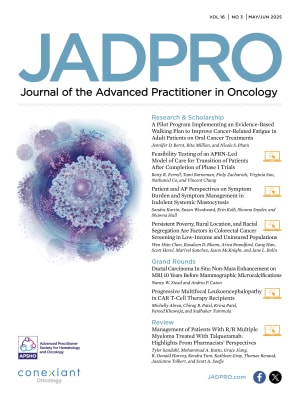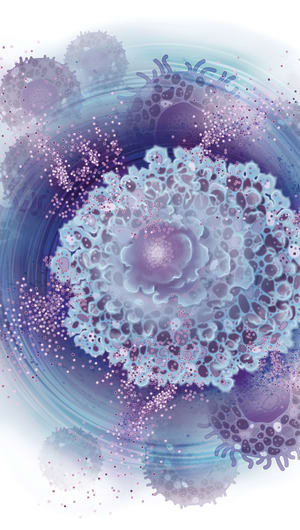Abstract
Chronic lymphocytic leukemia (CLL) is a disease most common in older adults, with a median age at diagnosis of 71 years. Chronic lymphocytic leukemia is considered an incurable but highly treatable disease, and it is characterized by varied trajectories, tempos, and prognosis based on disease attributes as well as patient attributes and access to care. Most patients still die from their disease. Therefore, a tailored approach to evaluation and treatment incorporating oncogeriatric principles with consideration of the individual patient and caregiver wishes and goals of care will be necessary to maintain health-related quality of life (HRQOL). A focus on living, staying well, engaging in health self-management, and becoming a partner in care offers the best hope for improved outcomes. The advanced practitioner in oncology is in a unique role to facilitate the development of care partnerships, carefully screen patients to account for comorbidities and other effects of aging, and apply risk-adapted treatment and supportive care strategies based on oncogeriatric principles. Preparing the patient and their caregivers for anticipated adverse events and educating them on not only how to report them promptly, but also any strategies for self-management, will facilitate continuation of therapies that may offer better control of the disease and ultimately improved HRQOL. The goals of this article are to highlight key elements of CLL survivorship and to provide the advanced practitioner in oncology with knowledge and resources that might improve the lives of both the CLL patient and their caregivers.







